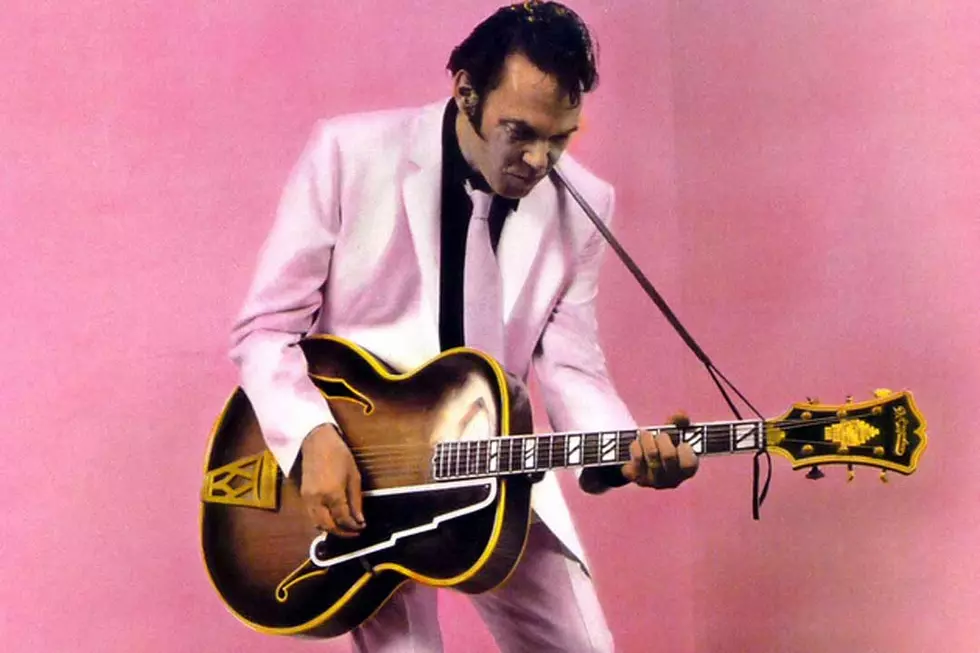
40 Years Ago: Neil Young Finally Pushes Geffen Too Far
Ever the restless wanderer, Neil Young spent much of the '80s exploring different musical avenues. It's only natural that one path would eventually take him back to the past, which is what happened on Everybody's Rockin', which was released on July 27, 1983.
After his 1982 foray into electronic music, Trans, confused the public, Young looked to a genre that had served him well in the past. However, Geffen Records didn't like the traditional country music sounds of Old Ways and demanded that he put out a rock n' roll album. Young responded with an album of rockabilly.
“I almost vindictively gave Geffen Everybody’s Rockin'," he later said. "Geffen wanted more rock ‘n’ roll. That was the key phrase: ‘Well, you want some fuckin’ rock ‘n’ roll, do ya? Okay, fine. I can do that. As a matter of fact, my uncle was a rocker, and I’ll be him.’"
For the project, Young threw together a handful of musicians he dubbed the Shocking Pinks. Ben Keith, who played pedal steel on Young's biggest seller, Harvest, was recruited to play lead guitar and alto saxophone. In the spirit of the originals, they recorded live and quickly. Of the 10 songs, six were originals, with the other four comprised of covers of early rock-era favorites like Jimmy Reed's "Bright Lights, Big City" and Bobby Freeman's "Betty Lou's Got a New Pair of Shoes."
Geffen wasn't happy with the results and shut down the sessions. Even though it had only 25 minutes of releasable music, the label still put out the album, complete with a photo of the star looking more like Neil Diamond – with slicked-back hair and a pink suit – than Neil Young.
Listen to Neil Young Perform 'Wonderin"
The album was slammed, not just because it was rockabilly, but because it was stale rockabilly. The songs Young wrote are uninspired genre exercises, and the covers lack the raw energy of the original recordings. Only Junior Parker's "Mystery Train," which was also recorded by Elvis Presley, has any sort of life to it.
Later that year, Geffen sued Young for $3.3 million, claiming that he wasn't making records in the style of After the Gold Rush or Rust Never Sleeps. Young counter-sued for $21 million on the grounds that his contract with Geffen offered him complete creative freedom.
The case was settled out of court, and Geffen released a new version of Old Ways in 1985. It wouldn't be until he left Geffen for Reprise at the end of the decade that he would return to artistic and commercial success with 1989's Freedom.
"It was a way of further destroying what I’d already set up," Young later ruminated. "Without doing that, I wouldn’t be able to do what I’m doing now. If I build something up, I have to systematically tear it right down before people decide, ‘Oh, that’s how we can define him.’”
Rock's Most Hated Records
The Best Crosby, Stills, Nash and Young Fight Stories
More From Ultimate Classic Rock









